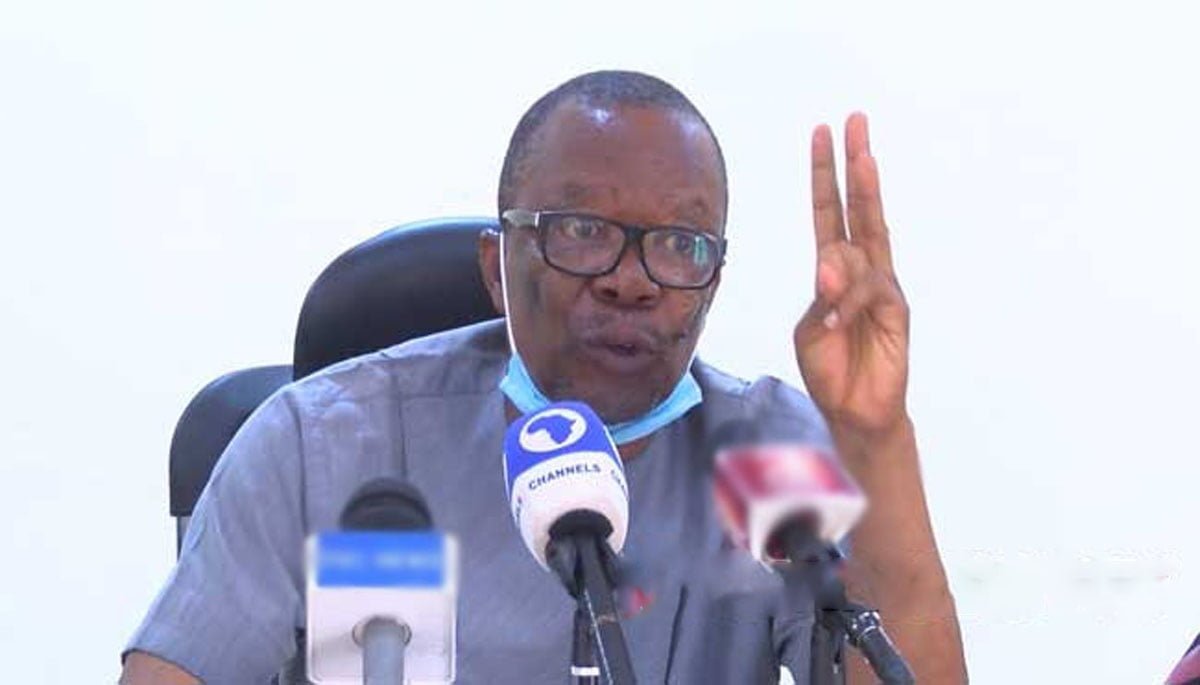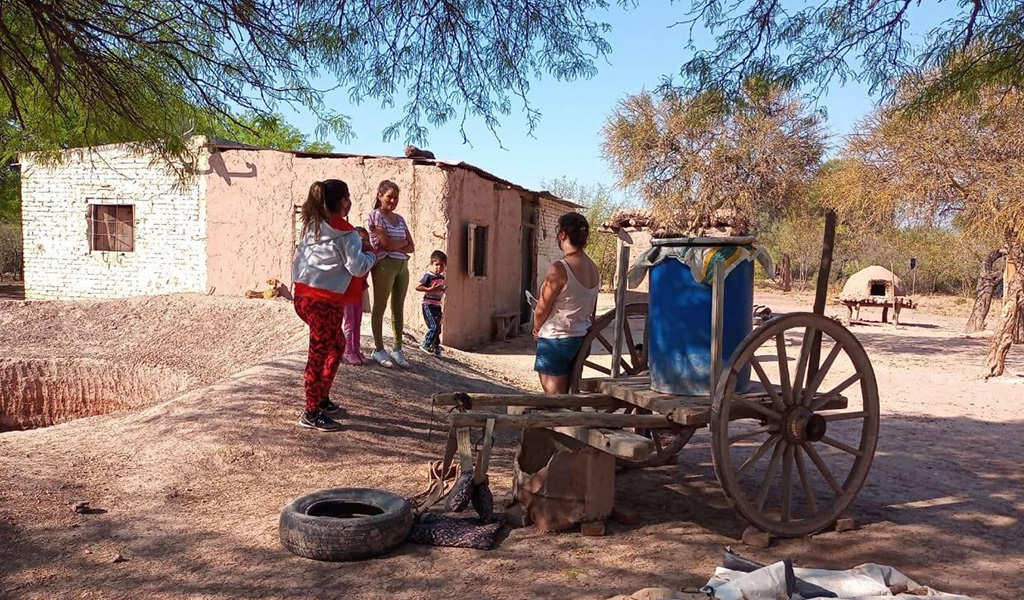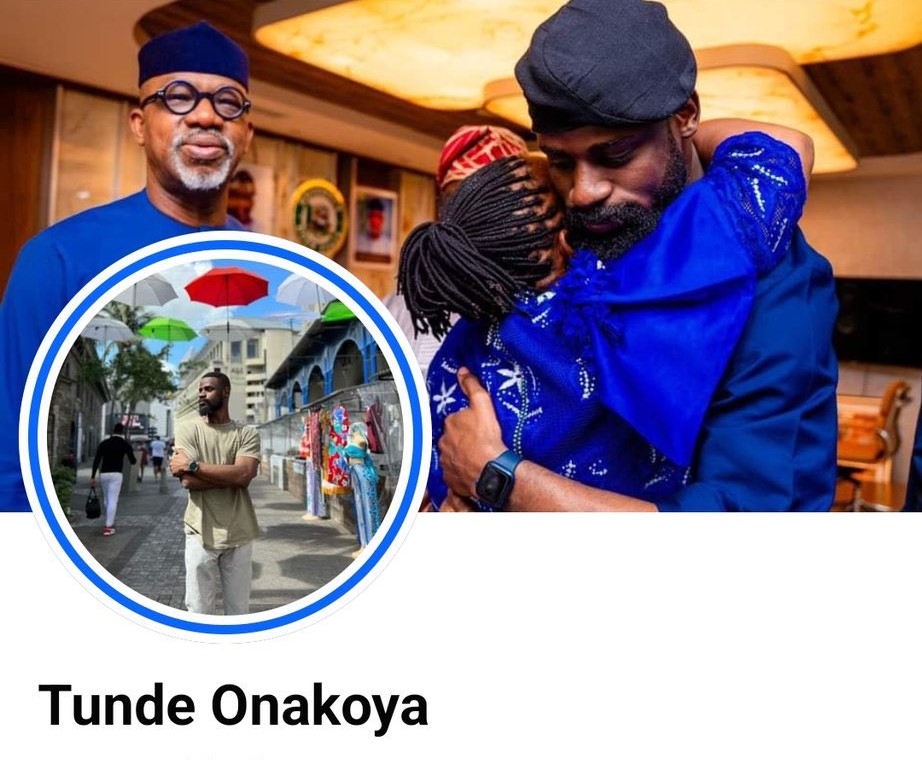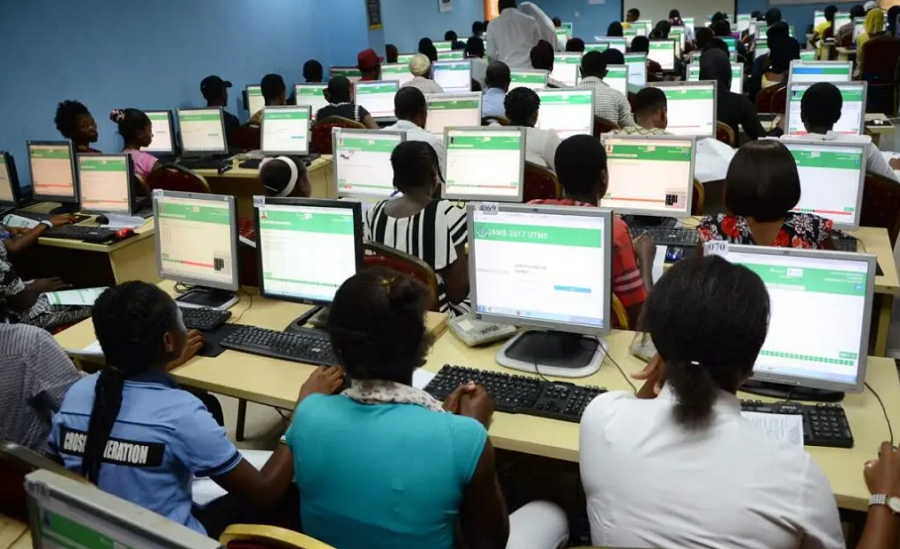Inside Iwoye, a rural community in the Egbedore Local Government area of Osun State, quarrying companies detonate explosives to break rocks at quarrying points close to private and public properties to the detriment of public and environmental health. People have fallen ill, residential and public buildings have become weak, but the wealthy owners of these companies ignore cries of the residents. In this report, SODEEQ ATANDA investigates the operation of these companies and documents the impact on the people and the environment.
Olawale Ramota, a middle-aged resident of Osun State, had committed her income from several years of menial labour to building a house in Iwoye in the Egbedore Local Government Area of Osun State.
Ramota, who lost her husband 15 years ago, manually refines palm oil for money, labours as a farm worker and cultivates the palm trees she inherited from her parents. With her earnings from all these, she built a bungalow of four rooms and a parlour. The house has sheltered her and her children for close to a decade.
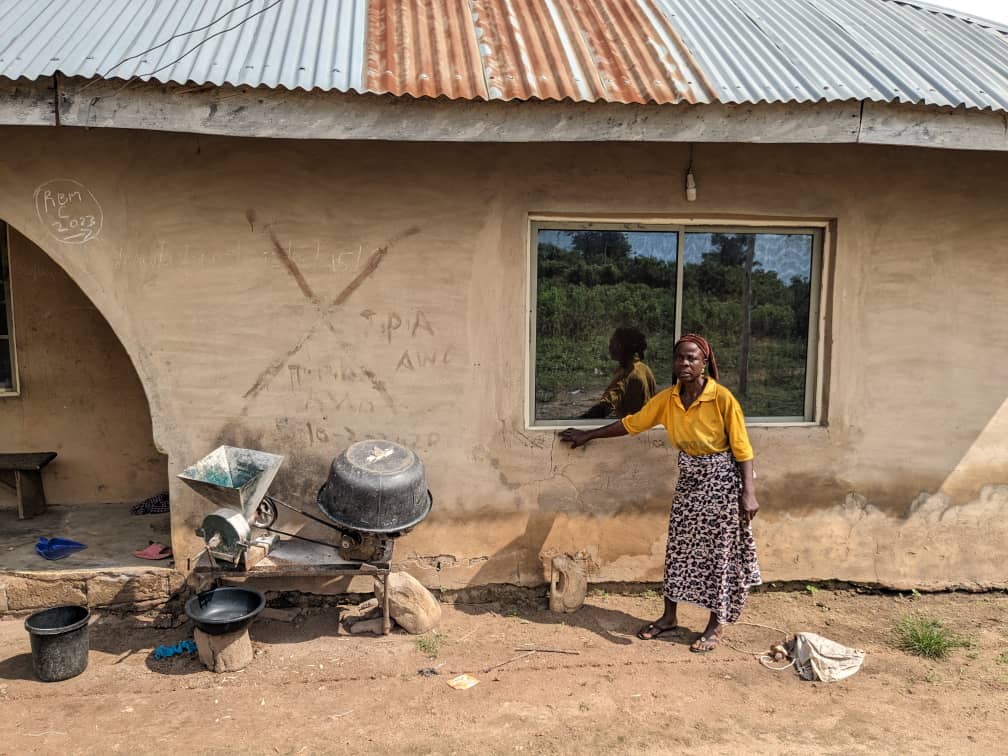
Ramota, now in her late fifties, is at the risk of losing her shelter due to rock blasts from quarry companies. Her house now wears the marks of stress and weakness from blast shock waves.
A ROCKY COMMUNITY
Iwoye, the community where Ramota was born and has lived all her life, sits on massive bodies of mineable rock. The entire local government area is home to 73,969 people, according to a 2006 population census.
The community itself is nestled between between the two major expressways connecting Iwo to Osogbo and other settlements in Osun State. Iwoye is a closely knitted rural community which economy largely depends on farming and petty trading.
According to the Federal Ministry of Mines and Steel Development, Osun State has solid mineral resources which include clay, granite, talc, dolomite, feldspar, quartz, limestone, mica and gold in commercial quantity. Until recently, artisanal miners got these these minerals, costing the state enormous wealth.
In an interview with the reporter, an elderly akara seller described the community as “too rocky. “Rocks are too much in our community. You will shiver if you witness a blast,” she said.
An environmental impact assessment report reveals that Iwoye soil has large deposits of materials such as migmatite gneiss, banded gneiss, biotite gneiss, augen gneiss, granite gneiss, granite, diorite and pegmatite.
READ ALSO: How Former Lawmaker Akintayo Amere ‘Sold’ Constituency Project After Leaving Office
Ramota’s experience does not only mirror the lives of Iwoye residents, but it also suggests that residents suffer more pain than gain as a result of mineral resources in the community.
These resources have made Iwoye an enticing destination for capitalistic quarrying companies who don’t regard the environment and the people of the community.
ORIGIN OF TROUBLES
Tewo Crown Nigeria Limited, a quarry company incorporated under the Nigerian Companies and Allied Matters Act on September 7, 2007, operated along Awo-Iwo road in the southern part of the community. The company mined granites commercially with two mineral titles. The first, numbered 12416, was valid from September 12, 2011 to September 11, 2016. The title, 17276, was valid from April 8, 2014 to April 7, 2019.
The first mining license covered an expanse of 211744 metre square. The second license, on the other hand, covered a land area of 423493 metre square.
After its operation, the late owner of Tewo Crown dumped the 423493 mining spot, transferring ownership to Slava Yeditepe, a Turkish construction company that was registered on December 19, 2012. The transfer left a deep pit that is about 150 metres wide and 10 metres deep.

Credit: Jimoh Mustapha Taiwo of the Department of Earth Sciences, Ladoke Akintola University of Technology, Ogbomosho, and Teslim Kolawole of the Department of Geological Sciences, Osun State University, Osogbo.
Following the exit of Tewo Crown, Slava Yeditepe Projects Limited began its activities in Iwoye community on a large and industrial scale. Apart from mining, the company also constructs residential, commercial, hotel, education, healthcare and road infrastructure.
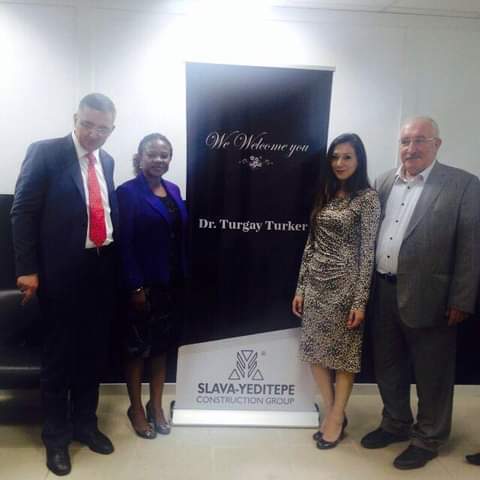
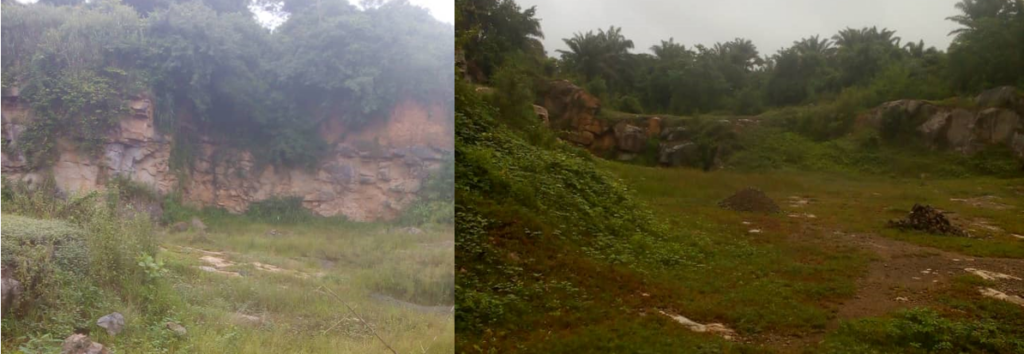
According to Olaoye Adeyemi Michael, a house owner in the community, the construction firm operates with higher grade equipment relative to Tewo Crown. While Slava Yeditepe executes massive public projects elsewhere in Osun, Lagos and Ogun State, it exploits Iwoye, digging up subsoil and solid resources without substantial projects to compensate.
Although Slava Yeditepe owns two abandoned sites with an active one, FIJ found that it had only obtained two quarry leases since it commenced business in the town. A quarry lease, numbered 17168, covered an area of 423493 square metres, and was valid from November 5, 2013, to November 4, 2018. The second quarry lease, with number 18309, covered 635248 square metres of land, and was operational from May 16, 2014, to May 15, 2019.
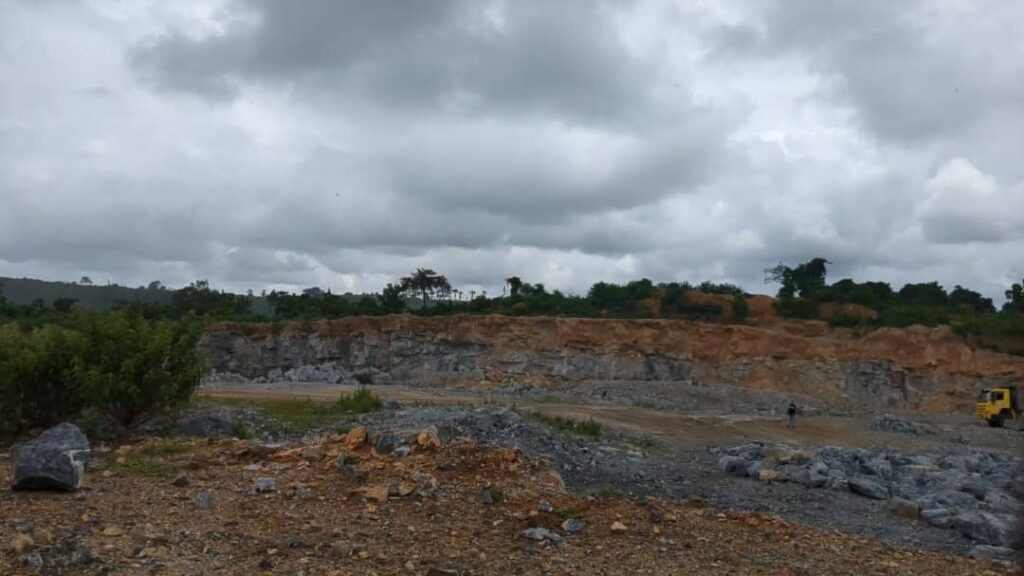
There are indications that Slava operates as two different organisations (referred to as Slava from here henceforth). Slava Yeditepe Projects Limited and Slavabogu Nigeria Limited, which were registered on July 14, 2017, seem to belong to the same group of persons. Three of Slava Yeditepe’s directors also double as directors on the company profile of Slavabogu. Both construction companies are also linked to the Okoya family.
Slava had enjoyed massive patronage from the governments of Rauf Aregbesola, Osun State Governor from 2010 to 2018, and Adegboyega Oyetola, governor from 2018 to 2022, within the short period of its incorporation.
Slava was awarded contracts to execute school and road projects in Osun State. Some their projects include the Osogbo East By-Pass Road, the 3000-student capacity steel structure school project constructed in each of the three senatorial districts in the state and three rehabilitated community roads in Osogbo/Irepodun/Orolu Federal Constituency running into billions of naira.
READ ALSO: How Ex-Lawmaker Akintayo Amere Diverted Constituency Project
Residents told FIJ that Slava obtains most of the granites it uses for Osun State contracts from Iwoye. As the company’s needs expanded, its quarrying activities in Iwoye increased, especially obtaining geological materials from one location to the other within the community.
Wolid Quarry Limited, another quarry company in Iwoye, was registered with the CAC on March 12, 2014. According to the company’s website, it officially began its operations in April 2015. It has been collecting quarriable materials and crushing them in Iwoye since then.
Wolid’s quarry lease, with license number 16984, as obtained from the Ministry of Mines and Steel Development, was valid from September 30, 2013 to September 29, 2018 and covered 846999 square metres of land.
The Federal Ministry of Mines and Steel Development states that a quarrying lease applies to all naturally occurring quarriable minerals, such as asbestos, clay, fuller’s earth, gypsum, marble, limestone, slate, sand, stone and gavel.
EXPIRED LICENSES
It could not be verified if Tewo Crown continues to carry on the business of quarrying elsewhere. However, FIJ’s findings showed that its quarry lease had expired since 2019. This newspaper also found that the two only quarry titles obtained by Slava had lapsed more than five years ago.
Wolid only had one license, which lost its validity more than four years ago. Despite the expiration of their respective licenses, the wealthy owners of the two quarrying plants continue to exploit solid minerals in Iwoye and impacting negatively on the built and natural environments without blinking an eye.
In addition to the above, the CAC has classified these companies as inactive. This directly implies that these entities have not filed their annual returns up to date as required by law and are in arrears of some dues, yet they keep transacting with private and government entities in contracts with huge financial implications.
Abiodun, known to all at Wolid Quarry as FM (an alias coined from his designation as finance manager), told FIJ via a phone call on August 4 that “whether our quarry lease has expired or not is not for anyone to challenge, but relevant authorities”.
STRESSED RESIDENCES
On a sunny afternoon, Samuel Olaniyan was sitting in the balcony of his house. Without a prior notice, Slava, operating a blasting site less than two kilometres to his residence, fired an explosive. The explosive produced violent sounds that shook the stability of his building structure as usual. Powered by the same explosive, plumes of noxious smoke discoloured the atmosphere. The same explosive also presented a scene that could have hit Olaniyan’s family most horribly.
“One incident that has been edged permanently in my head: as they (Slava) have always done, they detonated an explosive at their site over there and it came with a fearful sound. You could see the dusts in the air. Surprisingly, I saw a piece of rock flying toward my house. I never knew my wife was at the gate, trying to open it. She was just lucky that the rock did not land on her head. If that had happened, I don’t want to imagine what would have happened to her,” Olaniyan, a pastor, told FIJ.
Pictures showing wall cracks. Swipe to the right to see the rest. Photo Credit: Sodeeq Atanda for FIJ
Aside from the instance narrated by Olaniyan above, he has been battling with other explosive-induced destructions obvious on his buildings. Clearly, Olaniyan is not alone. Many residents of the community are counting their losses; like Ramota, like Michael Adeyemi, like Babatunde Adeoye and helpless innocent students. The impacts of the ground vibrations, defined as peak particle velocity, resulting from rock blasting are well distributed in the community. Virtually all residential and public buildings in the sparely-populated community have been affected.
Adeyemi, the home owner earlier mentioned and a member of a royal family in Iwoye, narrated to FIJ how a piece of concrete slab peeled off from the top of his room’s door on a fateful day and fell on his head as he was about to step out of the room.
“I can not recollect the exact day again, but it’s up to five years now. I was going to a friend’s event on that day. I had dressed up. I was to join my friend and from his home we were to proceed to the venue of the event. He had already been waiting for me. As I was about to step out, a piece of concrete slab peeled off from the wall and landed on my head. I felt a sharp pain on my head and it trickled down in my body. I lost my balance. So, I had to sit down. I couldn’t attend that event that day,” Adeyemi told FIJ while conducting our reporter round his building on July 22 to observe vibration-induced cracks.
About eight years ago, Ramota ran out of her house when Slava broke a large rock at a site very close to the only secondary school in Iwoye. After the vibration subsided, she returned to the house only to see cracks on the wall. So agitated, she ran to the company’s office to lay her bitter complaint, and an official followed her to assess the level of damage. The company never fulfilled its promise of fixing the damage.
Several residents who spoke with FIJ painted their individual experiences. Once they overcome the fear of a particular explosive, the anticipation of when another blast will occur builds up in their minds.
Olaniyan speaking about his experience.
Prince Ganiyu Olalekan Hassan, an indigene of the town resident in Lagos State, painted the challenge of Iwoye indigenes in diaspora. “When we were leaving our town to pursue a better life elsewhere, our parents prayed for us to become successful and return someday with the surplus of our wins. Many of us have become successful today, but we are afraid of going back to build our own houses because of these companies. No one wants to use their savings to build a house and have it destroyed by these firms. We can not even conceive any development plan while these companies are in the town.”
FIJ gathered that many of the residents could not improve on their houses given the situation the activities of the companies have plunged them into. FIJ observed that most of the buildings, good-looking and strong, in the town, have structurally been stressed due to earthquake-like blasting.
FIJ observed some collapsed buildings while going round the community. According to the residents, consistent blasting was responsible for the collapse. All private and public utilities within a short range from the blasting sites response disproportionately to ground vibrations leading to visible cracks from the foundations to the top. As the vibration levels have no specific thresholds, they create destructive effects on the living and non-living things in the environment.
SPRINGBOARD OF FEARS
Fear is what happens when one has a strong emotion caused by anticipation or awareness of danger affecting the personal well-being of the brain. Rock-blasting and its resultant effects reflected by intense ground vibrations inflict serious fear in the minds of students in the Community High School, Iwoye. This problem, combined with age-long systemic lack of effective learning systems, drastically lowers teaching and learning in the school.
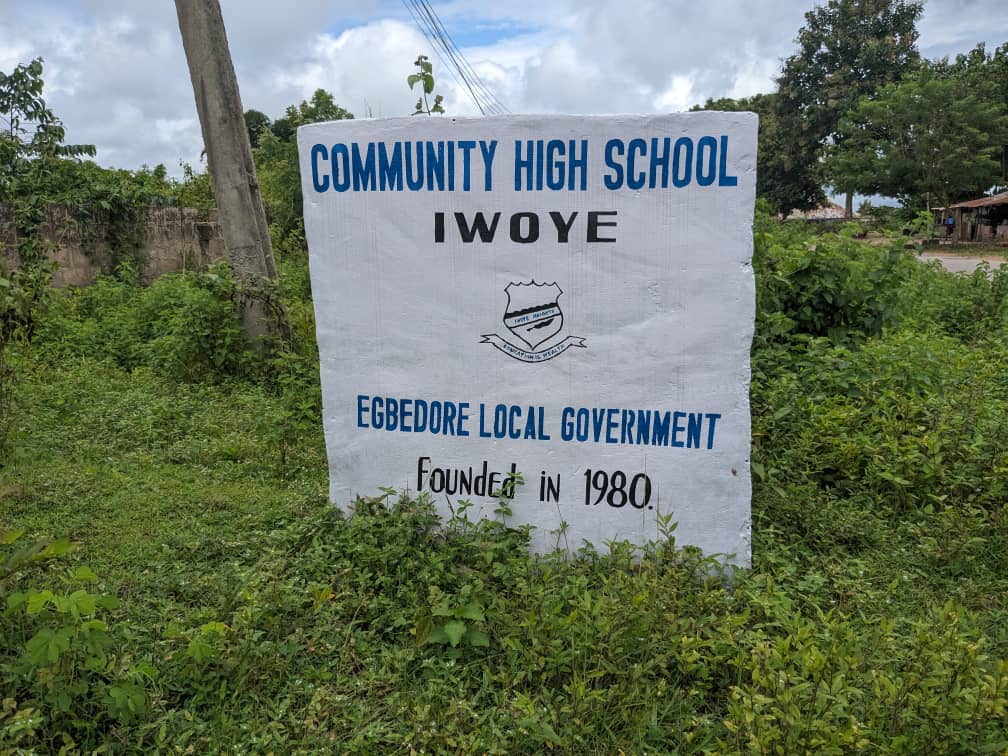
So many times, the management of the Community Grammar School, Iwoye, has had to close the school before the normal closing hour due to blasting.
FIJ learned from Abioye Segun, a teacher in the school, about the measure the school has adopted in coping with the mining-induced tension.
“Whenever they blast, students shiver. Some of them, especially the new intakes, will be looking around to see if it is an attack because of the situation of the country. Most times, when we are having a lesson, the sounds would normally scatter the whole process and cause stress for us. So, the teachers and the students have been working under tension. It has been a tough environment for us,” Segun explained.
The condition of Community Grammar School’s largest building.
He continued, “It is now part of our orientation process to familiarise new students with these events. We orientate them and prepare their minds for the sounds, ground vibrations and fly rocks so that when the blasts strike like a lightening bolt, they will not be too shocked. Also, when they blast, some pieces of rocks fly and land on our premises or on the roofs. Once we hear a sound, we send students back to their classes, which is not even safe because the buildings would be shaking. It is like running from frying pan to fire. You can see that the classrooms are weak already. We pray they will not collapse on us one day.”
Olawale, an SS3 student, shared his personal experience with us. “We are not always at peace when the blasting occurs. I can remember there was a day when our teachers closed the school about 1 pm and asked us to go home because of the blasting,” he said. “I am afraid we might someday sadly say we used to have a school in Iwoye if the government fails to act fast.”
In a research paper produced by the United States’ National Scientific Council on the Developing Child titled “Persistent Fear and Anxiety Can Affect Young Children’s Learning and Development,” the authors concluded that traumatic experiences could affect how children learn and solve problems. The research data showed that fear and anxiety affect the brain architecture and learning memory.
FIJ went round the school and observed that only one building of four classrooms looks good in the school. The rest have been fractured, bearing stripes left on them by blasting. Wall cracks bore the same pattern. Additionally, the asbestos in the classrooms have been broken.
Olaniyan, a parent, wonders how students cope with the shocks. “If those of us who are elderly could have these psychological problems, I do pity young children.”
FIJ also gathered that the school serve three communities in the local government area: Awo, Iwoye and Songbe. The current situation has driven some parents to withdraw their children from the school and relocate them in order to attend schools in other localities, according to Adeoye.
Pictures showing blasting-induced cracks on the school building. Photo Credit: Sodeeq Atanda for FIJ
About five years ago, Slava started renovating a building in the school, but it seemed upset by the residents’ push for compensation for the damage done to their properties and abandoned the work. It had already removed some window frames from the five-classroom building and did not fix them before abandoning the work. The cement meant for the rehabilitation is now hard, while a load of granites remains on the ground. Decrepit and windowless, the building continue to house students.
VICTIMS FACE INTIMIDATION, BLACKMAIL, SILENCING
There have been repeated complaints to local leaders about the companies in question. But the residents said they continue to be silenced and intimidated by people believed to be capable of acting on their behalf. Some influential leaders have been silencing those speaking against the injustice in the community.
According to Adeyemi, some chiefs and other members of the community are in the habit of talking down on any affected individual complaining about excessive blasting in the community. “Not once or twice have the chiefs called me to their meetings and told me to find something better to do with my life and stop challenging them or the company. They said a lot of derogatory things to me,” said Adeyemi.
There was a day Olaniyan’s wife was nearly hit by a flyrock that landed in front of his house. He decided to report the incident to then Oba Abdul Rasheed Ademola Oyeweso. But the now late monarch whittled down his complaints.
“I reported to the former king that same day. He told me I was trying to challenge his authority. I asked in what way was I challenging his authority and he said complaining against the company meant that I was inferring that the money he had collected from them was not sufficient. I was shocked. I let him know of my disappointment and left his residence,” said Olaniyan.
Chief Emiloju Adenle Akande, Balogun of Iwoye, whose building has also been impacted by blasting, once joined other residents in mounting pressure to have the companies act appropriately. He would be later intimidated. He was stripped of his chieftaincy title by the late monarch. We gathered that he later bowed to the king’s intimidation and chickened out in order to reclaim his position.
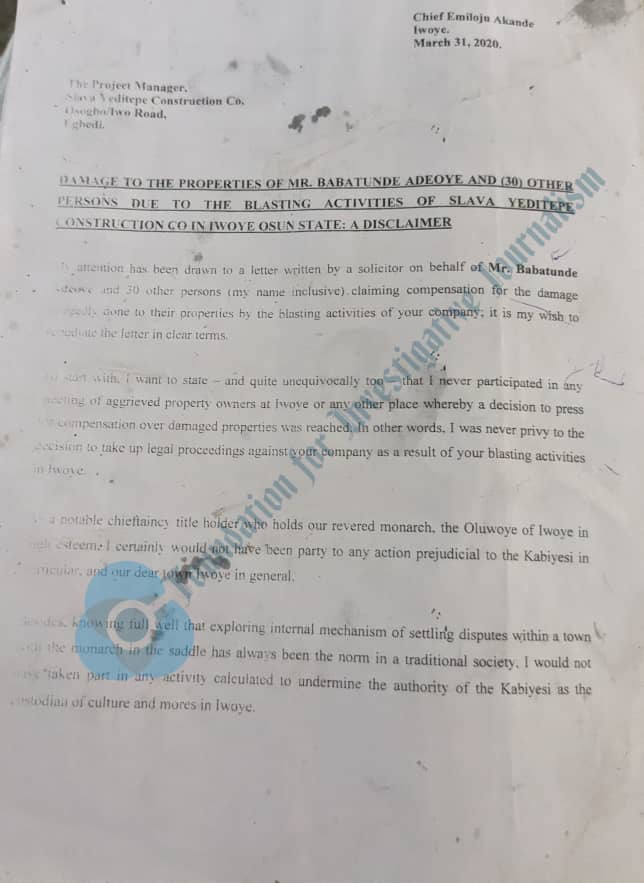
A letter captioned ‘Damage to the Properties of Mr. Babatunde Adeoye and (30) Thirty Other Persons Due to the Blasting Activities of Slava Yeditepe Construction Co in Iwoye Osun State: A Disclaimer’, dated March 31, 2020, and addressed to the company’s project manager bore testimony to an organised intimidation against dissenting voices in the community.
The letter stated in part, “To start with, I want to state – and unequivocally too – that I never participated in any meeting of aggrieved property owners at Iwoye or any other place whereby a decision to press for compensation over damaged properties was reached. In other words, I was never privy to the decision to take up legal proceedings against your company as a result of your blasting activities in Iwoye. As a notable chieftaincy title holder who holds our revered monarch, the Oluwoye of Iwoye in high esteem, I would not have been party to any action prejudicial to the Kabiyesi in particular and our dear Iwoye in general.”
The chief claimed he would not take part in any “activity calculated to undermine the authority of the kabiyesi”. While the chief admitted, as clearly seen in his letter, the maximum effects of Slava’s activities, he claimed he did not want to take any action prejudicial to the town. Adeoye, one of the victims, however, wonders which activity is more prejudicial and injurious to the town than the pollutants emanating from the quarrying firms. Following the letter, however, the chief was reinstated to his position as the Balogun of the town (In Yoruba traditional governance structure, Balogun is a war leader).
“Due to the compromising roles of key community leaders, these companies have grown to deny responsibility for their insensitivity and off-site effects of their businesses. This is despite the fact that they have a full view of the problems they have created and continue to do,” Adeoye told this medium. “These organisations don’t want to compensate for this injustice.”
According to Hassan, Chief Balogun and his cohorts were using police officers in the local government to threaten residents into silence and protect the firms from paying compensation. The chief declined comment when we called him on the phone on August 2.
Alex Osieme, posted to Egbedore Local Government in 2021 as the Divisional Police Officer, however, denied the allegation. He told FIJ on August 3 that no police officer from his station was attached to the firms, saying police officers attached to them were from the Special Protection Unit of the Nigeria Police Force and he had no authority over them. He added that he had never sent any police officer to arrest anyone in connection with the companies.
READ ALSO: EXCLUSIVE: Evasive Kwara Car Theft Ringleader Fingered in FIJ’s Investigation Arrested
FIJ phoned the new monarch on April 4 to get his comments on this story, but he declined to talk.
EXPOSURE TO HEALTH RISKS
“Sometimes, I could wake up in the midnight and find my mother awake. She will tell me she could not sleep. It constantly happens like that and I suspect it is because of the turbulence of blasting and the effects it has had on her building. She usually broods over this. A bricklayer could come to help us patch a crack today and the next time Slava or Wolid detonates an explosive, the cracks will open again alongside new ones,” Olawale Lukman, Ramota’s son, told FIJ.
Poor blasting design produces audible air blast at higher frequencies that shake the ground and tinge the human body. Once a blast is initiated, it performs a useful work for the firms and sends wave sounds that deposit panic in people’s minds.
From the blasting points, hazardous substances such as silica dust, poisonous gases, fumes and wastes emerge and mix with air, putting the people at higher risks of danger. Specifically, prolonged exposure of farmers and villagers to this high level toxic gases pose a serious health risk to them, according to Jimoh Mustapha Taiwo, from the Department of Earth Sciences, Ladoke Akintola University of Technology, Ogbomosho, and Teslim Kolawole from the Department of Geological Sciences, Osun State University, Osogbo, both environmental scientists.
The scientists concluded that the people of Iwoye were undoubtedly exposed to harmful substances over a long period of time and this would affect their health. Inevitably, the people breathe silica dust and inhale quarry dusts from the sites into their systems, all of which can cause lung cancer, silicosis, chronic pulmonary blockage and kidney disease. Already, statistics confirms that cancer, including lung cancer, accounts for 72,000 deaths annually in Nigeria.
Mrs. Olagunju, a health worker at a primary health and maternity centre in the town, told FIJ that community residents are only focused on the physical impacts of blasting on their buildings without recognising its implications on their health. She added that anytime a blast happens, health workers are usually tension-soaked.
“We hear the blasting sounds in our hospital. Most of the residents of Iwoye are only fixated on the destruction of their buildings, because they do not know that their exposure to the harmful substances used in fracturing the rocks affect their health. It is only health workers like us that understand this. For example, it can easily worsen a hypertension patient’s condition. It is a bad situation that we face daily,” said Olagunju on August 3.
There was no evidence that the quarry firms conduct regular health checks on the residents to ascertain the level of the lethal substances they might have inhaled through environmental pollution. Where public health is threatened, everyone is a potential victim.
When Governor Ademola Adeleke of Osun State issued a statement recently, saying “our people are dying as related sicknesses are spreading” owing “to intense environmental degradation arising from activities of mining companies,” he probably had the people of Iwoye in mind, particularly the society’s most vulnerable ones: the uninsured, young children and elderly adults who have not been captured in the Osun Health Insurance Scheme (OHIS).
READ ALSO: REPORTER’S DIARY: Has Tinubu Opened Land Borders? I Went to Idi-Iroko to Find Out
FIJ learnt that a man died some weeks ago. A few months earlier, the man’s wife had died following a brief illness. Residents do not know the causes of their deaths.
IN BREACH OF LAWS
Flora and fauna in Iwoye are equally not at peace with the operations of these miners. Currently, Slava has three blasting points. Two of the three sites have been abandoned. The companies left the abandoned sites for the new one.
Wolid has two sites, one is active, but the second has not been exploited. A source familiar with the latest site’s transaction explained that the company bought it for about N20 million through Oba Adekoyejo Adebusoye Oyebamij, the new monarch. Despite the continued cries of the people, the miners are bent on getting value for their money. Slava Yeditepe and Wolid have their crushing plants in the community.
Farmers have lost their fertile land, even when some of them never got a dime from the proceeds of the sale of their land, Hassan told FIJ. “The local aristocrats had a method: In the past, they made the landowners sign lease agreements under the pretext that the companies were going to bring prosperity to everyone in the community and gave them very ridiculous amounts of money.”
Contrary to the requirements of the National Environmental (Quarrying and Blasting Operations) Regulations, 2013, Wolid, Slava and those before them opened blasting sites and abandoned them. The Nigerian Minerals Act, 2017 and the National Environmental (Noise Pollution and Control) Regulations, 2009 are also embedded with pro-environment provisions, all of which the turbulent activities of these companies have disregarded.
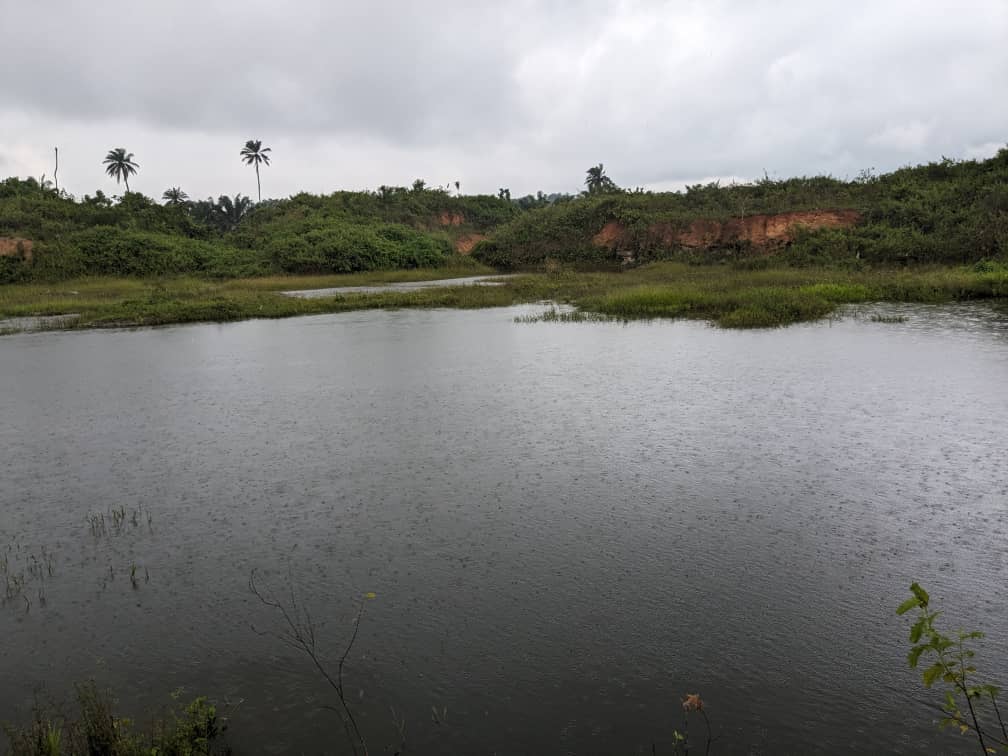
Section 20 of the 2013 regulation states, “A person shall not locate a quarry or engage in blasting within three kilometres (3km) of any existing residential, commercial or industrial area.” However, the blasting points are found in less than two kilometres to residential areas.
Furthermore, part IV of the law mandates quarrying companies to undertake post-quarrying corrective measures to restore the environment to its previous state. But these firms, according to FIJ’s investigation, have failed to perform these obligations.
A SEARCH FOR WAY OUT
Some aggrieved property owners have formed a cluster to present a unified voice to demand that different layers of authorities come to their aid, with recourse to the police, the Department of State Services, the Osun State Government and the Federal Ministry of Mines and Steel Development. Their long list of letters did not produce any lasting outcomes.
Back in 2016, they dispatched a letter to the Department of State Services and copied the state governor and other relevant stakeholders they believed could check Slava and other firms. Although the police responded and stopped Slava, the company soon opened up another site in the community and continued its operations.
Copies of complaint letters written by the residents (swipe to the right)
Adeoye told FIJ that a director at the ministry of mines confided in him at some point that the owners of these companies were too powerful for him to confront. While Adeoye and other locals still believe government could curtail the damaging operations of the companies, the director’s statement has instilled a skewed confidence in them from seeking solutions through regulatory bodies.
There was no evidence of any community development projects done by Slava in Iwoye. Wolid, however, has provided two boreholes and employed about five indigenes of the community as security guards with poor remunerations and unexciting working conditions.
In 2021, some aggrieved residents initiated a court action against the companies, according to legal filings obtained by FIJ. The matter has been before a Federal High Court sitting in Osogbo since 2021.
Our findings revealed that Grace Yetunde Omolori-Okoya was listed on both Slava Yeditepe and Slavabogu management teams as a director. She is one of the wives of Rasaki Okoya, an ultra-wealthy industrialist and owner of Eleganza Industries Limited, who is a very strong friend of President Bola Tinubu. On March 15, congratulated Tinubu in a statement on his declaration as president-elect. Before then, Tinubu had described how the businessman had been helpful to him.
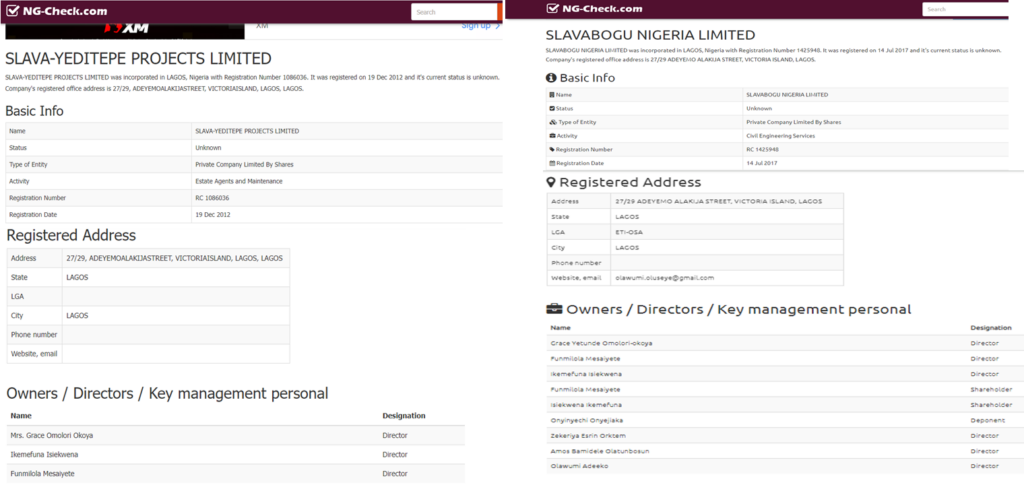
HISTORY OF ‘INJUSTICES‘
From FIJ’s findings, it appears that Slava went beyond building a reputation for disregarding the rules in the course of its operations. On December 13, a national industrial court sitting in Lagos State entered a judgement in favour of Adamu Babangida, a former employee of Slava, who sustained 3rd degree burns on his stomach, hands and laps as a result of the company’s negligence. The company had left him to his fate and he had had to treat himself with his own money. The court found Slava of breaching its duty of care and ordered it to pay Babangida damages to the tune of N8 million.
In 2019, one Yasil, said to be a brother to Zekeriya Ersin Oktem, a managing director of the company, reportedly stabbed Ojo Oluwaseun for not adding ‘Mr’ to his name in a document. Oluwaseun, an accountant with the firm at the time, also received threats of losing his job thereafter, according to different reports.
Equally, an employee of Wolid, whose name is withheld, accused the company of insensitivity to the welfare of its workers. He said most workers earned poorly despite doing hazardous works that sometimes caused them injuries.
Two emails FIJ separately sent to the Federal Ministry of Mines and Steel Development via the email addresses (iaismp.support@minesand steel.com and [email protected]) listed on its website returned undelivered. All the phone lines (080002000300+2349087404761, +2349087404762, +2349087404763) listed on the website were also not available.
READ ALSO: SPECIAL REPORT: Inside Katsina IDP Camp ‘Where There’s No Hope’
“The very existence of our community is under threat. By the time the firms are done with Iwoye, most buildings would have probably have been destroyed. Even if the government asks them to compensate us, I don’t think it will go to the heart of the problem. As if there is no law, these are acting badly without consequences. They should leave!” An elderly community member said.
Emailed questions sent to Slava for comments on this story had not been responded to. A direct message sent to Slava via its Facebook Messenger on August 7 was read, but the company did not respond to it. We also sent a letter to Slava, but it had not been responded to at press time.
With no exception, all the mining firms have destroyed private home and public utilities in the community. Not only that, the heat of the operations of these companies takes its toll on the flora and fauna. Desperate quarry firms risk people’s lives for income. Locals hope the government would come to their rescue because that is their ancestral settlement and they have no other place to go.
FIJ shared the findings of this investigation with Tunde Balogun, Special Adviser to Governor Adeleke on Sanitation and Environment on August 7. He said he would relate to Mayowa Anjorin, Commissioner for Environment and Sanitation, and act accordingly.
“You will get an update by Friday,” he said. “Earlier, we had spoken with Anjorin and he had directed us to contact the special adviser.”
Produced with support from the Wole Soyinka Centre for Investigative Journalism (WSCIJ) under the Collaborative Media Engagement for Development Inclusivity and Accountability project (CMEDIA) funded by the MacArthur Foundation
Subscribe
Be the first to receive special investigative reports and features in your inbox.
































